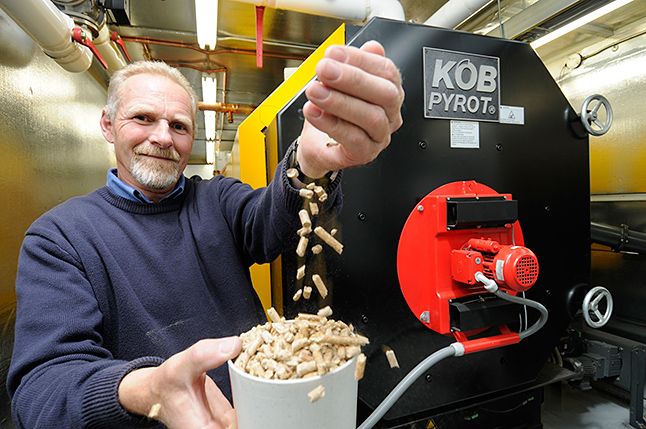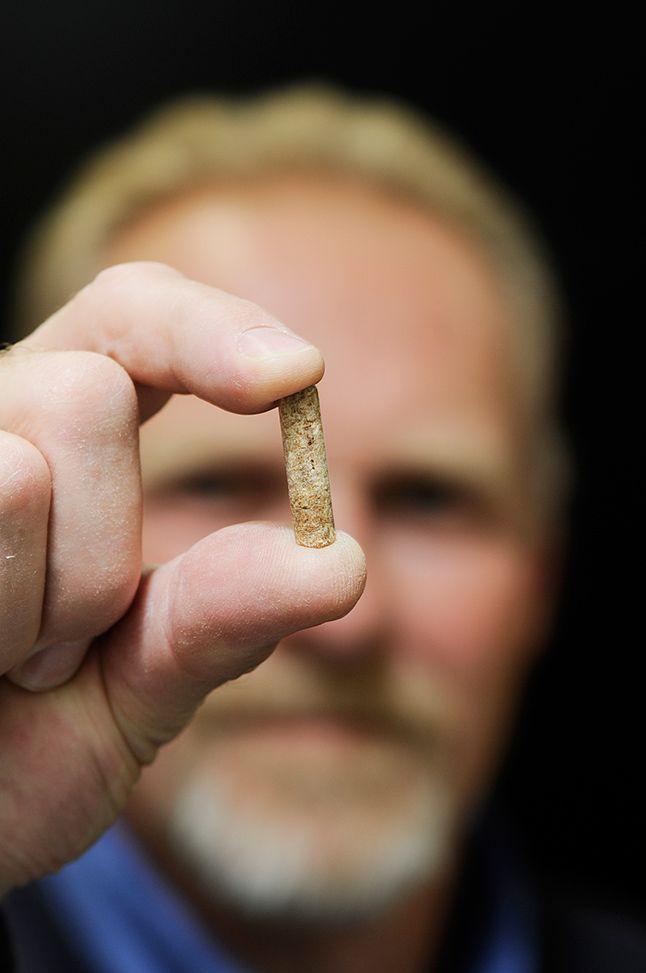In May 2009, UNBC installed Canada’s first university-owned wood pellet heating system, to heat the Enhanced Forestry Laboratory. The Pellet Plant was a demonstration project initiated by the Wood Pellet Producers Association. The Pellet Plant showcases domestic use of wood pellets, and examines the commercial and environmental benefits of utilizing biomass for energy production at UNBC. The project affirms UNBC’s ability to successfully own and operate an advanced renewable energy system, while simultaneously producing valuable research.

In late 2014, the Pellet plant was moved from the Enhanced Forestry Lab to the Bioenergy plant. This allows the Pellet plant to provide heat to UNBC Residences and Daycare, as part of the Sustainability Communities Development Project, Phase 3 of the UNBC Energy Initiative.
System Highlights
- Capital Cost: $486,000
- Capacity: 400 kW
- Buildings Heated: 1
- Fuel Input: 40 to 90 tonnes/year wood pellets
- Heat Output: 850 to 1,500 GJ/year
- Emissions Reductions: 50 to 90 tonnes CO2e/year
Fuel
The Pellet Plant currently uses wood pellets to produce hot water, but is also capable of running on wood chips or high quality hog fuel. Wood pellets are donated by Sinclar / Premium Pellet Ltd.
Emissions
The Pellet Plant highlights that biomass heating systems can have very low particulate emissions. Third-party emission tests revealed that the system produces particulate emissions at the same level of natural gas.

Close-up of a wood pellet
Award-Winning Research, Education and Demonstration Potential
Beyond the system’s operational function, the facility has provided a valuable demonstration site for teaching and interdisciplinary research. For example, through various course projects and summer research projects, students and faculty are studying the energy and mass balance of the pellet plant, including the generation of ash residuals and emissions production. Ongoing research opportunities include investigating the use of ash materials as soil amendments to return biomass nutrients to surrounding agricultural and forest soils. This research allows UNBC's Prince George campus to serve as a living laboratory for research, all the while improving our own operations from the research output.
The research and outreach benefits led to UNBC winning the prestigious "Best Campus Case Study" award at AASHE's 2010 Campus and Student Sustainability Awards, an honour UNBC shared with Harvard University. The award was announced in Denver in front of 2,400 delegates at AASHE’s annual conference.
Details of UNBC’s 2010 AASHE award
Funding Partners
- UNBC
- Government of Canada’s Community Economic Diversification Initiative
- Wood Pellet Association of Canada